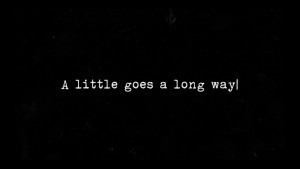 It was a curious finding. One we stumbled on quite by accident. Highly effective therapists were more likely to contact their clients between visits than their more average peers. We wondered whether such behavior might account, at least in part, for their superior retention rates and outcomes?
It was a curious finding. One we stumbled on quite by accident. Highly effective therapists were more likely to contact their clients between visits than their more average peers. We wondered whether such behavior might account, at least in part, for their superior retention rates and outcomes?
Turns out, our serendipitous finding fit nicely with results from the field of behavioral economics documenting how very simple actions can have a dramatic impact on people’s behavior. In one well known example, a study showed the way food is displayed in school cafeterias –it’s location and prominence–significantly impacts whether students make healthy or unhealthy eating choices. Similar results have been recorded in other areas, such as saving for retirement, choosing the best health insurance plan, deciding whether to exercise or make positive lifestyle changes.
In all cases, the “nudge” –as researchers call such interventions — are simple, inexpensive, and require little time and effort to deliver. A recent report in The Chronicle of Higher Education found, for example, a single email expressing compassion and support to students who had failed their first semester exam led to better classroom performance and less school drop out. And since our original discovery, psychotherapy researchers have confirmed what highly effective practitioners have known all along. The study by Flükiger, Del Re, Wampold, Znoj, Caspar, and Jörg found that clients who were sent a brief letter and had one follow up call between visits experienced significant and lasting improvements in the quality of the therapeutic relationship over the course of care.
Clearly, a little can go a long way. But where to start?
It would be wrong to conclude that we should start phoning (or sending emails) to all of our clients between visits. The research cited above and findings from our interviews with highly effective therapists show, to be effective, therapeutic nudges must interrupt “business-as-usual.” The default choice for most practitioners is not to engage in extratherapeutic contact with clients. We are busy enough and reaching out crosses a boundary. Additionally, and importantly, any such efforts need to show our interest in the client while simultaneously leaving them free not to comply. Simply put, nudges can not be shoves.
Evidence shows using simple measurement scales on an ongoing basis to assess progress and the quality of the therapeutic relationship can augment our ability to identify and time these types of interventions. Indeed, as I posted last week, clients whose therapists do so are less likely to dropout and 2.5 times more like to experience benefit from treatment. Actually, 10’s of thousands of clinicians around the world are using the tools I created nearly 20 years ago to inform their work. If you aren’t, click here to download them for free.
In the meantime, if you are looking for new and creative ways to nudge your therapeutic effectiveness upwards, join me in Chicago for one or more of our Summer workshops:
- The two-day “FIT Implementation intensive” is the only evidence-based workshop in the U.S. designed to help you implement feedback informed treatment in your agency or healthcare system.
- The three-day “Training of Trainers” will enhance your presentation and training skills. It’s a blast, the most fun workshop we do.
- Last but not least, the two-day “Deliberate Practice” workshop will, as the name implies, help you use deliberate practice to improve your clinical effectiveness. We help you identify the targets and develop a plan.
All the best,
Scott
Scott D. Miller, Ph.D.
Director, International Center for Clinical Excellence

I love this! Thank you. I secretly feel like I’m betraying my profession by offering out-of-the-office communication. I feel like I need to keep it a secret. I have admired your work since I was in Grad school, so much resonates with me and the evidenced based findings are a bonus!